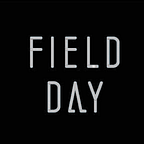Genes Please! Using a Game to Encounter Ethical Implications of CRISPR
CRISPR — it’s one of those new science technologies that’s fun to talk about because who doesn’t want to to imagine a better future made possible by science? But whose version of “better” would prevail? The “what if’s” made possible by CRISPR gene editing technology are under intense debate by the international science community. Because these debates already affect policy decisions, the public needs to consider the ethical ramifications of what CRISPR could make possible.
Professor Krishanu Saha runs a stem cell research lab at the UW-Madison and also educates high school teachers on new CRISPR developments. He says, “People have a lot of questions about CRISPR and gene editing but insufficient ways to engage with experts to explore those questions.”
Professor Saha wants to train his research fellows and students about “where they’re going with gene editing and how it relates to questions in the broader world.” Questions like: Would you change your eye color permanently? Would you remove the risk of Alzheimer’s for your children — even for your great-grand-children? Imagine if you could give your child an IQ booster at the same time you vaccinate her against chickenpox — would you do it?
Where do you draw the line? How much would you charge to cure a genetic disease or boost IQ? Could a gene edit wipe out (or even restore) a whole species?
“I want to show people where gene editing is going,” Professor Saha says. “I want to put them in the space of those who are doing it so they can understand the pressures and incentives…. To contrast what the scientists can do in the lab with what the public hopes to get out of science.”
He chose to work with Field Day Lab to design a digital game that would immerse high school and college students in the world of a CRISPR research scientist. A digital game was the right choice because learning in a game environment goes far deeper than do other forms of media for learning. Games, when done well, accomplish so much more than “fun.” They allow the player to deeply explore, play and fail while learning about a topic — in this case, the ethical ramifications of gene editing.
In the CRISPR ethics game, the player will take on the role of a gene editing researcher at a CRISPR lab. He or she decides which projects to take based on the gene edits requested, who requested them, and how much they will pay the lab. Some projects are desirable, but don’t offer financial payoff, while others rake in the cash but for dubious purposes.
Will the player accept a trivial, yet lucrative project? Or turn down a project treating a sick child whose family can’t afford to pay? What genes are players willing to manipulate? Some players may make their decisions based on gut reactions — which reflects what easily happens in the public arena when people are not informed by research.
“We wanted to make a game that lets people examine specific scenarios and see deeper complexities within them,” says Field Day Lab Director David Gagnon. “When presented with different information on the same topic, people’s opinions can change. Our decisions aren’t as consistent as we think they are.”
During the game design process, we investigated other games that present choices for the players to grapple with. In “Papers, Please,” a text-based role-playing game, the player is the border control agent in the fictional country of Arstotska. Players must balance national priorities and the consequences of each of their choices. “Reigns” is another primarily text-based role-playing
game where the player is the monarch of a fictional kingdom. By swiping “yes” or “no,” to simple questions, the player determines the destiny of their kingdom and their family dynasty.
The CRISPR game will discover what heuristics (problem solving shortcuts or strategies) the player is using, and then require the player to shift their strategies when given new scenarios. “There just isn’t a simple set of rules that applies to when we edit genetics,” Gagnon says. “There are gray areas.” What seems right in a given situation may have far reaching, unintended ramifications. This game explores why people view some gene edits as ethical, but not others. And it may help the players recognize their own inclination to react to complex topics without being informed by the research.
Professor Saha also wonders how far players will be willing to go with their gene edits in their quest to be a viable lab. Does the player draw the line at an IQ booster? Would they be willing to wipe out a species (even if it is mosquitoes) to keep their lab solvent?
As the players decide which gene editing projects to accept in their research labs, their anonymous game play data will be collected for analysis. MIT collects player data like this in Moral Machine, their game about self driving cars. The player data will also help Professor Saha understand public opinion on topics like bio security, access to gene therapies, crop enhancement, and more. “We realized this could be an interesting experiment,” Saya says. “It would give qualitative boundaries about where decisions on gene editing become ethically challenging for players, to help us see where the grey areas actually are.”
In addition to taking a snapshot of what individuals think about this technology, it will also create an experience that helps policymakers understand the complexity of the issues. “Let them play it out in the game first,” Saha says.
Professor Saha and his lab will make an impact on history and society with their CRISPR research. This game will help make their research more understandable to the next generation of scientists and policy makers.
*We are currently in the process of securing funding to produce the design we created for this game. Read more about the CRISPR Ethics game here.
